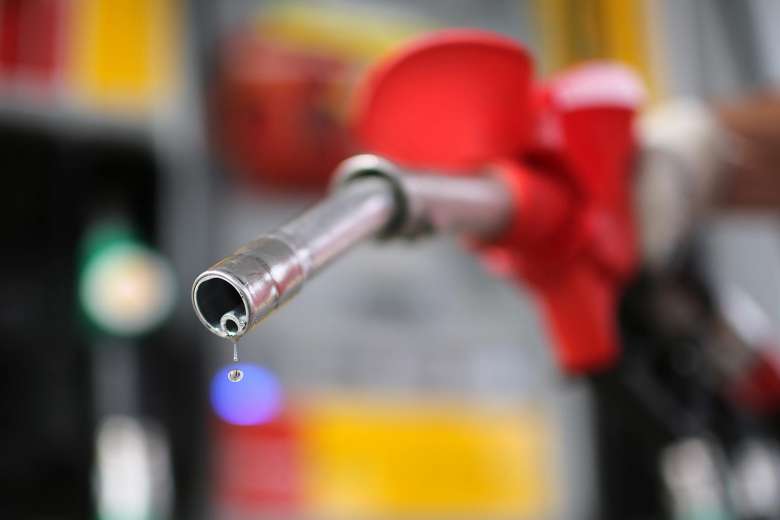- Fuel Queues Return to Lagos Amid Supply Hiccups
After more than a year of relief from fuel scarcity in the country, filling stations in some parts of Lagos experienced queues on Monday, while some refused to sell Premium Motor Spirit, popularly known as petrol, to motorists.
The pockets of fuel queues in Lagos emerged few days after the Independent Petroleum Markers Association of Nigeria, Lagos State chapter, accused the Nigerian National Petroleum Corporation of under-supplying its members with petrol.
IPMAN had said last week that its members in Lagos and parts of Ogun State might be forced to shut their filling stations by December 11 if the situation persisted.
A source, who is an executive of a Lagos-based oil marketing company, told our correspondent, “This is the second week in which supply has not been very robust.
“The rationing started the previous week. The NNPC has been the major supplier and there have been distribution dislocations since the Apapa jetty got burnt, making it difficult for major oil marketers to get products; they have to be doing throughput with other companies, because they can’t receive products through that line until the repair is completed.”
Noting that demand for petrol had increased due to the approaching Yuletide, he said depot prices had gone up.
“So many depots are selling above the recommended price of N133 per litre; it is averaging between N140 and N142.5. When you know you have 10 million litres and you know people make payment of about 20 million litres on a daily basis, automatically you will begin to ration and in the process of rationing, there will be so many hidden charges,” the official stated.
The Group Managing Director, NNPC, Dr. Maikanti Baru, while reacting to the allegation by IPMAN last Thursday at the inauguration of the NNPC mega station in Sagamu, had noted that the corporation was importing about 100 per cent of the petroleum products in the country, saying there were sufficient products.
He said, “We distribute at the ex-depot price of N133 per litre; so there is no reason why anybody should sell above N145 per litre. So if some people are playing around, I will leave it for the relevant regulatory authorities, the DPR and the PPPRA to take care of. As for IPMAN, I want to advise that this is not the route to go.
“They know what it means to go on strike; to deprive people of products will be the saddest thing that will happen because I have sufficient products and I am selling within the PPPRA price template.”
IPMAN had particularly complained of shortage of product supplied to the Ejigbo satellite depot, which, it said was serving more than 900 filling stations in Lagos.
The association alleged that the NNPC was not only under-supplying its members with the PMS, but was also frustrating them by reneging on the bulk purchase agreement it signed with its members to supply the product to them at N133.28k per litre.
It said with the under-supply from the NNPC, its members were being forced to approach the Depot and Petroleum Marketers Association, which was allegedly buying at N117 per litre from the NNPC and reselling to IPMAN members at N141 per litre.
It added that at that rate, it had become unrealistic for them to continue to sell to the end users at the regulated price of N145 and still expect to break even in business.
Meanwhile, the NNPC on Monday stated that there was no plan to increase the prices of petroleum products both at the ex-depot level and the pumps ahead of the forthcoming Yuletide.
It insisted that the ex-depot price of N133.38 per litre and the pump price of N143/N145 per litre of Premium Motor Spirit, popularly known as petrol, had not changed, adding that it had enough stock to ensure seamless supply and distribution of products across the country.
The corporation urged motorists and other users of petroleum products to disregard rumours of an impending fuel price hike on some online news platforms.
The NNPC said it had the full commitment of all downstream stakeholders, including petroleum marketers and industry unions, to cooperate in achieving zero fuel scarcity this season and beyond.
It added that motorists should not engage in panic buying or indulge in the dangerous practice of stocking petroleum products in jerry cans at home.
The corporation said its downstream subsidiary firms, Petroleum Products Marketing Company and the NNPC Retail Limited, were fully set to ensure that motorists enjoy uninterrupted access to petrol throughout the season across the country.

 Forex3 weeks ago
Forex3 weeks ago
 Naira2 weeks ago
Naira2 weeks ago
 Billionaire Watch2 weeks ago
Billionaire Watch2 weeks ago



 Naira3 weeks ago
Naira3 weeks ago






 Naira2 weeks ago
Naira2 weeks ago




 Naira1 week ago
Naira1 week ago




 Naira4 weeks ago
Naira4 weeks ago






 Naira1 week ago
Naira1 week ago
























